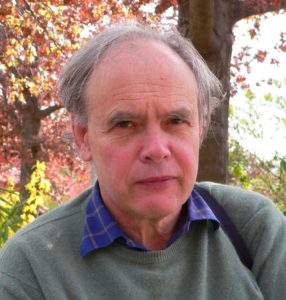Bill Bush came to drugs late in life. It was while he was working in the Department of Foreign Affairs and Trade in Canberra that he started putting in stints as a volunteer at a detoxification centre secreted in a cottage hidden behind the Department of Defence. Every month or so he would spend the night there and cycle on to work across the lake the following morning. The detox centre provided the opportunity for fascinating conversations with interesting people and reading a few interesting books as well as mind-numbing television. What he saw, read and heard set him to asking questions to which he rarely found satisfactory answers. One question was how a drug like heroin came to be prohibited when it had been widely used medically, readily available in cough mixtures and was manufactured from poppy straw still grown in Tasmania in accordance with treaty concessions that he had had a little to do with setting in place while working in the treaties section of his department.
The time came when the volunteers were no longer required and in 1997 Bill fell in with a local Canberra group formed earlier that year at a public meeting convened by Michael Moore, a local Legislative Assembly member and now CEO of the Australian Public Health Association, following an unprecedented 11 overdose deaths in Canberra before Easter. Families and Friends for Drug Law Reform was a fruit of that public meeting. The organisation offered limitless scope to explore Bill’s many questions and even more scope for prodding politicians and others in authority to apply rational standards of evidence and reasoning to the examination of a policy of prohibition that applied the coercive process of the criminal law to address a health and social problem. There was a strong correlation between illicit drugs and virtually all of Australia’s most serious social problems. How much did this harm flow from drug policy rather than the drugs themselves?
The 1990s also saw the rise in radical liberal economic politics. Bill’s puzzles were compounded by how the respect for individual choice that this ideology professed could coexist with a socially conservative agenda that demonised cannabis – a drug that research at the time showed to be pretty harmless. Why should this be prohibited while at the same time alcohol and tobacco, subject to free market regulation, were ravaging the population? Criminal prohibition of even clearly harmful drugs like heroin seemed no more effective in reducing their availability than did free-market regulation of the legal drugs.
Bill first learnt to ask questions at a small country State School on the fringes of Melbourne. This subversive practice was further encouraged at boarding school in that city where he somehow resisted taking up smoking and subsequently while studying law at the just opened Law Faculty of the new Monash University. He never had to deal with any drug cases while working briefly as a solicitor in Melbourne but when he found himself teaching law at a college in Malaysia as an Australian Volunteer Abroad he occasionally became aware of some curious scents wafting around the student block where he was housed.
Back in Australia two and a half years later he found himself in the Department of Foreign Affairs. Before long he was at the University of Cambridge studying international law. This endowed him with some competence to run the treaties section and finally the Antarctic section before he retired to full-time absorption in writing submissions and otherwise stirring on behalf of Families and Friends for Drug Law Reform. He is encouraged by the prospect of doing himself out of a job.
December 14, 2017

